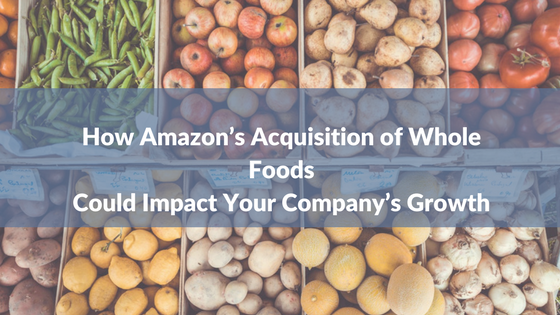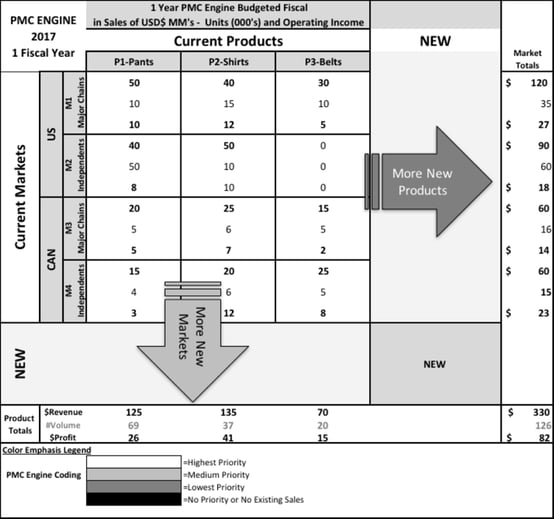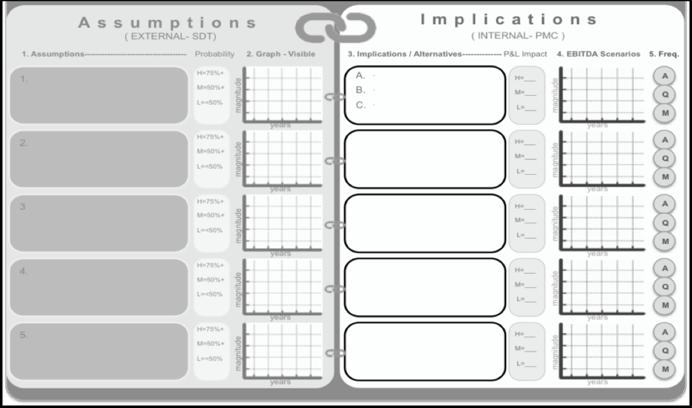
Amazon’s acquisition of whole foods has rightfully caught the attention of executives and media over the last days. Whether or not you’re in the grocery industry or even marginally related to it – your company will be impacted.
Seasoned executives will be using this wave maker event to retool or recheck their version of how the world will unfold and find blindspots in their company that only recently may have been scoffed at as – NEVER COULD HAPPEN.
3 Things to Prevent Your Company from Being Eaten
1. Create or Revisit Your Strategy Assumptions
Assumptions make visible how your executive team believes the industry will unfold (rightly or wrongly). Product, Customer, Technology, Competition and Regulatory factors are key external inputs your company needs assumptions on.
Many company don’t have a crisp list or assumptions and implications or even a format that is relevant to drive decisions and make mid-course course for scarce resources and competing capital.
Create (or revisit) them with your team in light of this the Amazon decision and use it to ensure you and your team are thinking broadly on industry scenarios.
Strategic assumptions are a decision making and visionary tool to think broadly about scenarios that might unfold in your industry, and make deliberate decisions rather than leaving you flat footed – as I’m sure some grocery chains are feeling today.
A key strategic question to answer is:
- Who could be our future competition?
- Why would they enter and disrupt our industry?
- If you don’t have a practical format use this free download from my book to shore up your Assumption and Implications thinking - you can find one from my book here.
2. Have a Framework to Make Sense of and Think
Through Options
In strategic short-hand Amazon acquired a NEW PRODUCT (Whole Foods)that fits nicely into the current markets and customers they serve. Amazon is simply leveraging and building on one of their key capabilities –distribution and logistics competencies.
In addition, Amazon understands their assumptions and believes a long-term trend for more fresh, organic food will unfold. Competitively we now get to watch how they bring technology, speed and service from a different frame of reference to this industry.
So you if you have a Framework to analyze strategic choices –you’ll find that it comes down to three – PRODUCTS, MARKETS and CAPABILITIES.
New Product, to Current Customers, leveraging a core competency. That’s what Amazon did last week.
Basic strategy but powerful decision making when you put the pieces together. As Dan Gallagher of WSF rightfully pointed out in his article today only a small percent of their distribution capacity is dedicated to grocery – and the organic has high growth upside in near and long-term.
KEY QUESTION
What is your framework to think through Product, Market and Capability Choices, help you make sense of current moves and think through potential ones?
- Use this free tool – if you want a visual framework on Growth options - get here

3. Call on the Front Line
It’s hard to sit around a board or executive team meeting and expect all the answers to be known. Executives don’t have all the answers – but the best ones know where to find them.
The top executives I work with find ways to involve the key people closest to the customers, suppliers and competition. More time than not this is the front line of your company that needs to be engaged in strategy - not just executing it –but providing intelligence.
You don’t have to invite everyone a meeting – but I guarantee lurking out in your business in the supplier chain, sales, customer service and manufacturing functions are people that have heard or envision new competitors, new ways to compete, changing customer needs and radical technology that can change your business
Get them to provide input on growth ideas and assumptions.
KEY QUESTION:
Which Front Line people we tap to provide on the ground insights?

Net / Net
Strategic moves are rarely surprising – the ones surprised are usually:
- Not thinking about their business from an OUTSIDE – IN perspective
- Don’t sense check their assumptions on regular interval
- Don't’ have a common framework to think about strategy
- Neglect to use the Front Line




